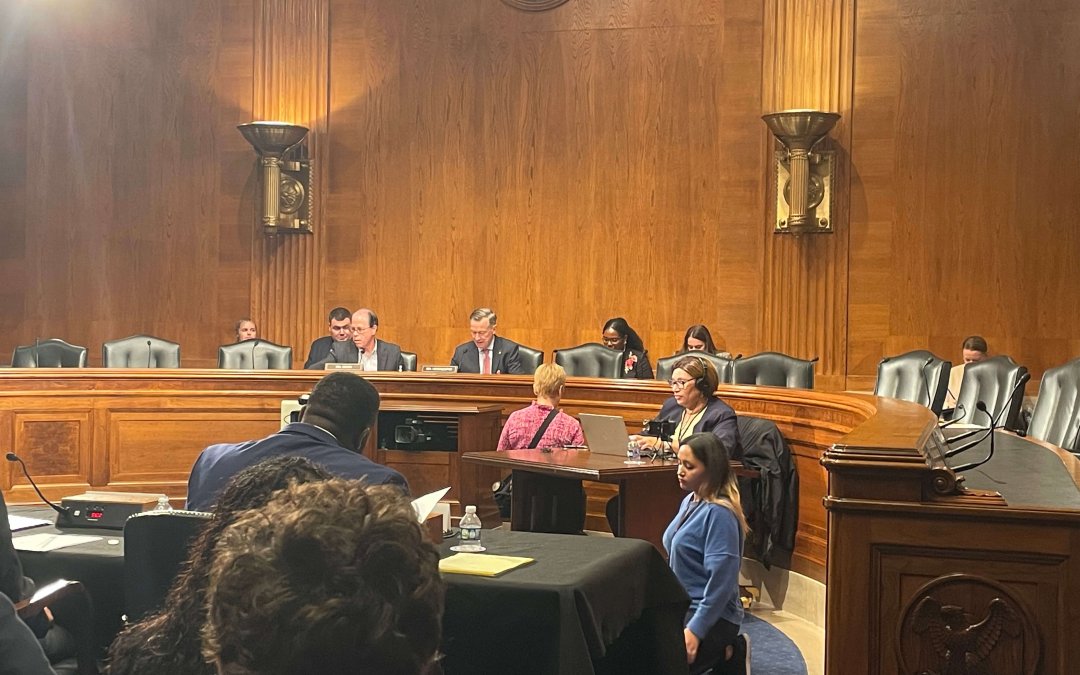WASHINGTON — Lawmakers heard concerns from experts, workers, and business owners on Tuesday about Artificial Intelligence and its future use in the workplace.
Appearing before the Senate Committee on Health, Education, Labor and Pensions, the panel of witnesses appeared generally optimistic about the rapidly developing technology but recognized the need for its regulation at the federal level.
The hearing came a day after President Joe Biden issued an executive order establishing new standards for AI safety and security, like requiring AI developers to share their safety test results and other critical information with the U.S. government. In the order, Biden also called upon Congress to pass bipartisan AI privacy legislation to protect consumers, particularly children.
Sen. John Hickenlooper (D-Colo.) began the hearing by acknowledging the quickly expanding scope of AI’s influence, citing a PEW Research study claiming that nearly six in ten workers have interacted with AI in the workplace this year. Hickenlooper said lawmakers have an imperative to legislate around this technology safely with the cooperation of workers and business owners.
Bradford Newman, Co-Chairman of the AI Subcommittee for the American Bar Association, claimed that some legislators, such as those in New York City, have already failed to create comprehensive laws that protect users and mitigate risk. He claimed these conflicting regulations are “anti-innovative” and create unnecessary barriers to entry for AI firms and could even cause firms to consider relocating outside of the city.
Newman claims that the solution to these patchwork regulations on the state and local levels is for the federal government to take charge of AI legislation. He finds the federal government more apt to implement these regulations both because overlapping state regulations could stifle innovation for potential AI firms and because the federal government has the proper funds to research the potential downsides of AI and legislate accordingly.
Newman recognized that using AI will inevitably lead to job losses even in unexpected fields. “There are going to be less lawyers, less paralegals, less admins,” Newman said.
Newman does not see this as a negative, however, as he claims AI will be capable of “doing things better than a human can do.” He believes this imminent unemployment can be curbed with retraining programs to give workers the skills to collaborate with AI, which other members of the panel like Tyrance Billingsley, Founder and Executive Director of Black Tech Street, agreed with.
Sen. Mike Braun (R-Ind.), using his previous experience as President of Meyer Distributing, Inc., claimed that implementing the latest technology would increase productivity for businesses and the economy as a whole. While Braun shared Newman’s fear of imminent job displacement, he claimed AI is “a little different” and common sense regulations should be put in place to ensure AI isn’t stopped before it can flourish.
Other members of the panel like Mary Kate Morley Ryan, Managing Director of Talent and Organization for Accenture, do not see AI as a major threat to workers in America and believe jobs will be done by both humans and AI in tandem.
Ryan believes that employers should focus less on workers’ credentials such as college education and more on their skills to work with technology. These skills can come both from K-12 schooling, as well as businesses investing in their workforce through reskilling programs.
Sen. Bob Casey Jr. (D-Pa.) emphasized the need for workers to be included in the conversation about how AI will change the workplace to protect workers’ rights and dignity. Sen. Casey has also introduced legislation such as the “No Robot Bosses Act” which would require employers who use Automated Detection Systems to disclose information about their use to their employees before any employment-related decision.
When asked about his three most worrisome nefarious uses of AI, Newman neglected to mention anything related to the job market, instead listing deepfakes used by state actors, election interference, and promulgation of cyber attacks. Hickenlooper said at the end of the hearing on AI’s influence on the workplace that he felt optimistic.


